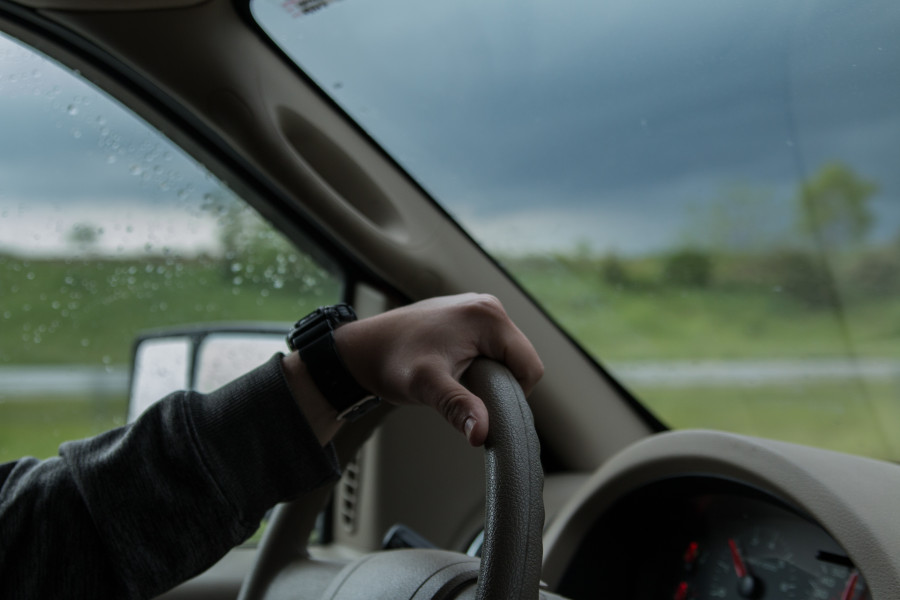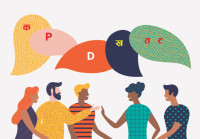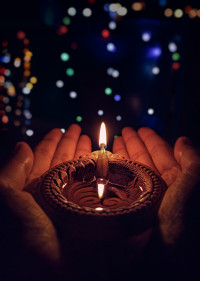As it is
Rolling through life—in a metal box
My father’s car transports us to places, but most importantly, to our safe and lyrical space.
Asmita Manandhar
Leaving the keys in the ignition, my father closed the door and left me to my own devices. “I’ll be back in an hour,” he told me. I was just 13, so didn’t know where we were, and views to provide any hints were obscured by the lofty walls either side of the quiet alley. A tree popping from inside one of the walls provided some shady respite for the baking car.
The keys meant I could both stay cool and entertained by the radio.
I was used to this—whenever my father had to take me to the dentist or run an errand for me, he used to squeeze in some time for his own work. That meant making a pit stop for meetings or his own errands, and a bit of time reading for me.
That particular day, I did the usual—took out a book from my bag, turned on the radio. This was always an exercise in killing time. But what was supposed to be an hour, took far longer. Waiting in a car is never pleasant, but waiting longer than you expected is a whole different level of pain. In order to cope with my restlessness, I started rifling through the library of cassettes in the car’s glove compartment.
It was there, inside my father’s car, on a hot summer day, I was introduced to Ghazals. The short poems, consisting of rhyming couplets, kept enough of my attention to consume both sides of the tape. By the time I had almost finished listening to ‘Side B’ of one of Jagjit Singh’s albums, my father finally arrived.
When he heard the song, settling into his seat, he looked at me and laughed.
“Did you like it?” he asked. I just smiled back and nodded.
I remember throughout the ride home, he told me about Ghazals and his love for the poetry. We listened to some of his favourites.
My father was like any other Nepali father in the 80s—strict, disciplinary and formidable. He wasn’t around much at home either. He would be gone for work before I woke, and back late at night, when mother had already put us to bed.
So, we never had ‘friendly’ conversations. Regardless of how much he denies it now, I know he didn’t know our ages or which grades we were studying while growing up. Frankly, we didn’t know him either. On rare occasions, when he used to be home for dinner, I used to quietly listen to mother filling him in on the day’s events—mostly about the household logistics—and that was what had become of us. It was an arrangement, of sorts.
I used to scoop mouthful after mouthful of dal-bhaat and take much longer to chew and swallow, just to avoid any questions from him— it was always about school or grades.
But in his car, at 13, we were finally talking about something other than the customary. We were talking about music and poetry, we were talking about his interests and hobbies—something I had never really thought about. I always saw him as a hardworking, sombre person, but he finally revealed his true colours, and his playful and creative side.
From that day on, whenever I had to wait in his car, he used to take out a couple of cassettes and recommend I listen to them. I used to recline in my seat, close my eyes and tried reflecting on the soul of the verses and music. And, when he was back, we discussed the lyrics—mostly in Hindi and Urdu—as he patiently explained the meanings and the artists’ metrical choices of words.
That became our escape from the banality of routine—a break from my school and his work. Some of our car-friendship trickled into our living room and my parents’ bedroom too—my father used to read me his poems and encouraged me to write too. I did, sometimes, and I read my words back to him.
But it was mostly inside the rolling metal box—which changed a few times over the years—where we vented to each other. He used to take me for a drive—to scold me for my fibs, to cheer me up, to rant about others. It wasn’t just about dental appointments or household chores anymore.
I didn’t mind waiting either—his Ghazal library kept me company in his absence. I listened to a number of Ghazal artists—from Ghulam Ali, Jagjit Singh, Pankaj Udas, Abida Parveen, to others I’ve entirely forgotten now. And, at a certain point, there was a role-reversal—neither of us can really pinpoint when it happened. I started explaining the meanings of the verses to my father, as he once did to me.
In recent years, the role-reversal has become more evident—my father is now retired and I’m struggling to pave a career. Now I have come to understand the chaos he was subjected to when I was young, and he is the one who waits while I work and run my own errands. Unlike me, he doesn’t have Ghazal to keep him company—like the cassettes, his indulgence has also become a thing of the past.
But the reversal has yet to completely manifest outside the safe and lyrical space we managed to build inside his rolling metal box. He is still at the wheel and I’m his passenger. But, when we lock the doors and roll up the windows, we still aren’t afraid to share our vulnerabilities—despite the streets’ unrelenting hustle.
But I know that chaos is perpetual. The more I forge into adulthood, the more I realise life’s indefinite commotion and disruption—and I understand my father’s absence during my childhood years. However, luckily for me, we have each other’s back—or, let's say, we have his car.
***
What do you think?
Dear reader, we’d like to hear from you. We regularly publish letters to the editor on contemporary issues or direct responses to something the Post has recently published. Please send your letters to [email protected] with "Letter to the Editor" in the subject line. Please include your name, location, and a contact address so one of our editors can reach out to you.




 13.12°C Kathmandu
13.12°C Kathmandu.jpg)










